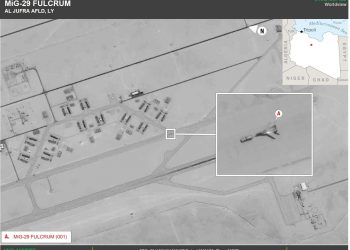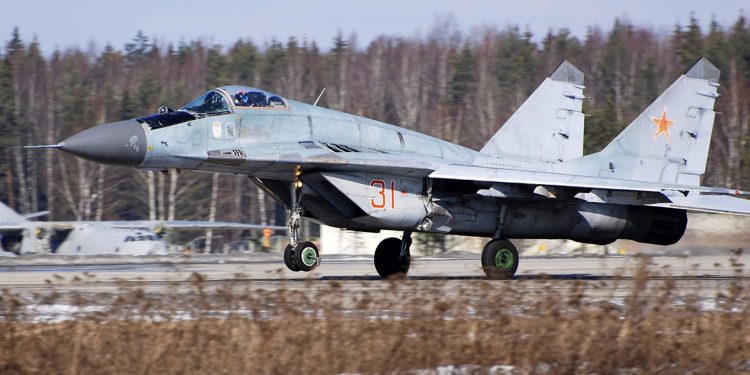Russia recently deployed military fighter aircraft to Libya to support Russian state-sponsored private military contractors, or PMCs, operating on the ground there, U.S. Africa Command officials said.
Russian military aircraft are likely to provide close air support and offensive fires for the Wagner Group PMC, which is supporting the Libyan National Army’s fight against the internationally recognized government of national accord, Africom officials said in a news release. The Russian fighter aircraft arrived in Libya from an air base in Russia after transiting Syria, where Africom officials assess they were repainted to camouflage their Russian origin.
”Russia is clearly trying to tip the scales in its favor in Libya. Just like I saw them doing in Syria, they are expanding their military footprint in Africa using government-supported mercenary groups like Wagner,” said Army Gen. Stephen Townsend, Africom’s commander. ”For too long, Russia has denied the full extent of its involvement in the ongoing Libyan conflict. Well, there is no denying it now. We watched as Russia flew fourth-generation jet fighters to Libya — every step of the way. Neither the LNA nor private military companies can arm, operate and sustain these fighters without state support — support they are getting from Russia.”

Russia has employed state-sponsored Wagner in Libya to conceal its direct role and to afford Moscow plausible deniability of its malign actions, the Africom release said, adding the command’s assessment that Moscow’s military actions have prolonged the Libyan conflict and exacerbated casualties and human suffering on both sides.
Townsend said Khalifa Belqasim Haftar, who commands the Libyan National Army, had made his intentions clear. “The world heard Mr. Haftar declare he was about to unleash a new air campaign,” the general said. “That will be Russian mercenary pilots flying Russian-supplied aircraft to bomb Libyans.”
Russia is not interested in what is best for the Libyan people, but is working to achieve its own strategic goals instead, Africom officials said.
”If Russia seizes basing on Libya’s coast, the next logical step is they deploy permanent long-range anti-access area-denial capabilities,” said Air Force Gen. Jeff Harrigian, commander of U.S. Air Forces in Europe-Air Forces Africa. ”If that day comes, it will create very real security concerns on Europe’s southern flank.” Russia’s destabilizing actions in Libya also will exacerbate the regional instability that has driven the migration crisis affecting Europe, officials said.











